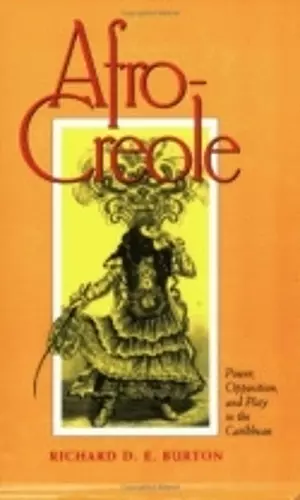Afro-Creole
Power, Opposition, and Play in the Caribbean
Format:Paperback
Publisher:Cornell University Press
Published:5th Jun '97
Currently unavailable, and unfortunately no date known when it will be back
This paperback is available in another edition too:
- Hardback£108.00(9780801432491)

This wide-ranging book explores the origins, development, and character of Afro-Caribbean cultures from the slave period to the present day. Richard D. E. Burton focuses on ways in which African traditions—including those in religion, music, food, dress, and family structure—were transformed by interaction with European and indigenous forces to create the particular cultures of Jamaica, Trinidad, and Haiti. He demonstrates how the resulting Afro-Creole cultures have both challenged and reinforced the social, political, and economic status quo in these countries.
Jamaican slaves opposed slavery in many ways and one of the most important, Burton suggests, was the development of Afro-Christianity. He pays particular attention to the African-derived Christmas celebration of Jonkonnu as an expression of opposition and then documents religion in the post-slavery period, with an emphasis on Rastafarianism in Jamaica and Vodou in Haiti. The element of play has always figured importantly in Afro-Caribbean life. Burton examines the evolution of carnival and calypso in Trinidad and describes the significance of cricket in defining Caribbean national identity.
Based on ten years of research, Afro-Creole draws on historical, anthropological, sociological, and literary sources. Burton characterizes the emergence of Caribbean identity with three different national flavors and demonstrates how culture both reflects and impacts people's changing sense of their own political power.
This is a stimulating, wide-ranging and theoretically well-informed anthropological and historical exploration of Afro-Caribbean popular culture.
* British Bulletim of Publications *A bold and cogent study.
-- Sada Niang, University of Victoria * African Studies Review *A fine and comprehensive history.... It is perhaps the most useful survey yet on the formation of distinctively Afro-Creole forms of public expression in the Anglophonic West Indies.
* New West Indian Guide *Afro-Creole admirably captures the essence of what it means to be Caribbean. By daring to 'run against orthodox thinking' on the matter of the culture of resistance, the author has provided a provocative and thoroughly enjoyable reexamination of the entire question of African survival in the Caribbean. He will not end debate on the matter, but he has certainly greatly enriched it.
-- Keith Q. Warner * Research in African Literatures *Burton's work is perhaps the best researched, most thoughtful, intellectually provocative study of the complex relationship between history, religion, poetics, culture, and social change especially, but not exclusively, in the English-speaking Caribbean. It is powerfully written, humorous, and meticulously examines the psychology and paradoxically religious anthropology of Jamaican and Trinidadian politics.... The essence of the argument is that popular protests, regardless of the practical forms like cricket, dance, or carnival in Trinidad and revivalist religions like Myal and Rastafari in Jamaica, simultaneously challenge and reinforce the status quo and are accepted substitutes for overt power confrontations.... Burton's conclusion suggests that the order and conservatism of most Caribbean societies may be explained by the important role of cultural activities as a historical medium for diffusing and controlling the masses.
* Choi- Winner of A 1998 Choice Magazine "Outstanding Academic Title.
ISBN: 9780801483257
Dimensions: 235mm x 155mm x 21mm
Weight: 454g
320 pages